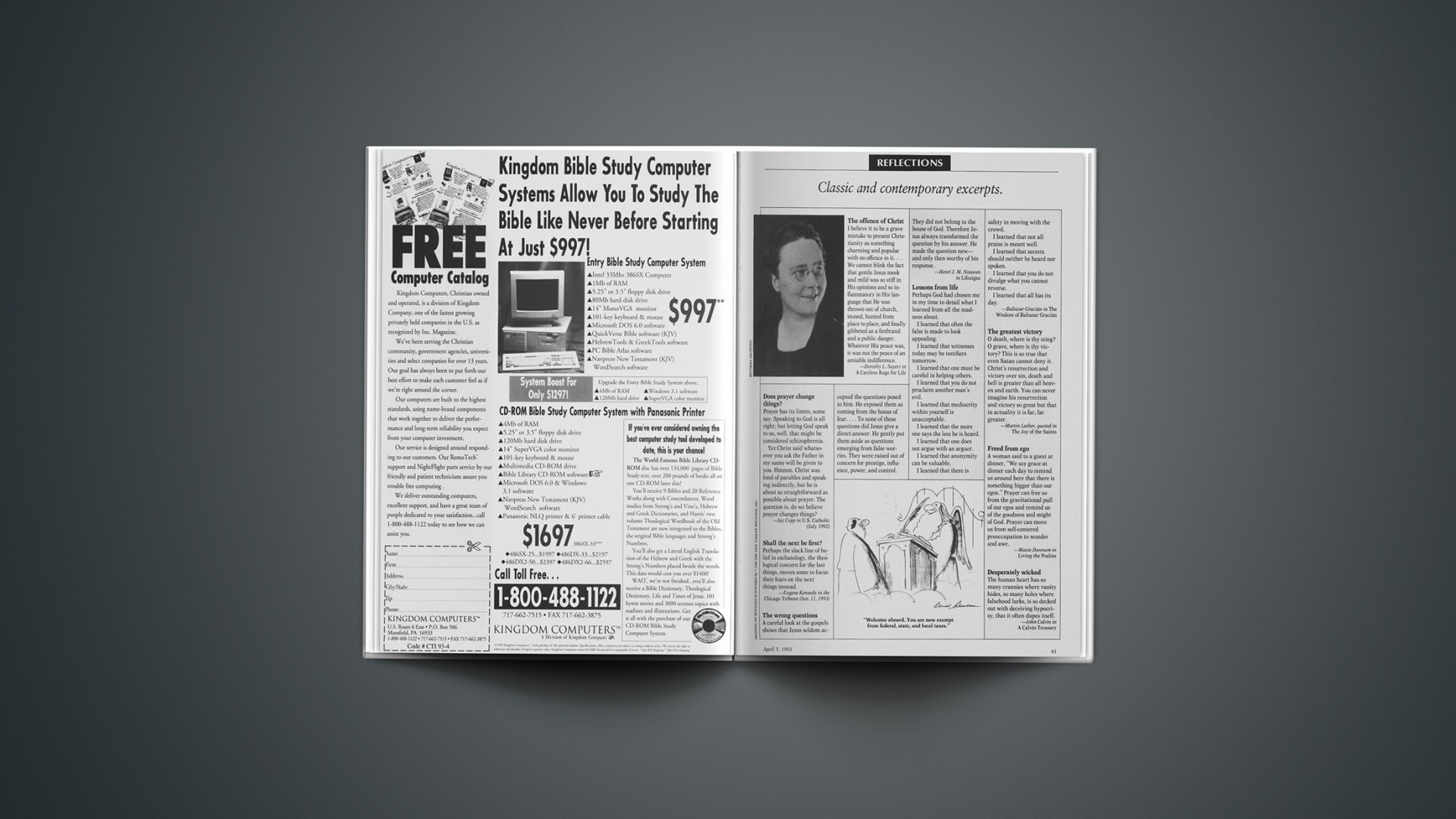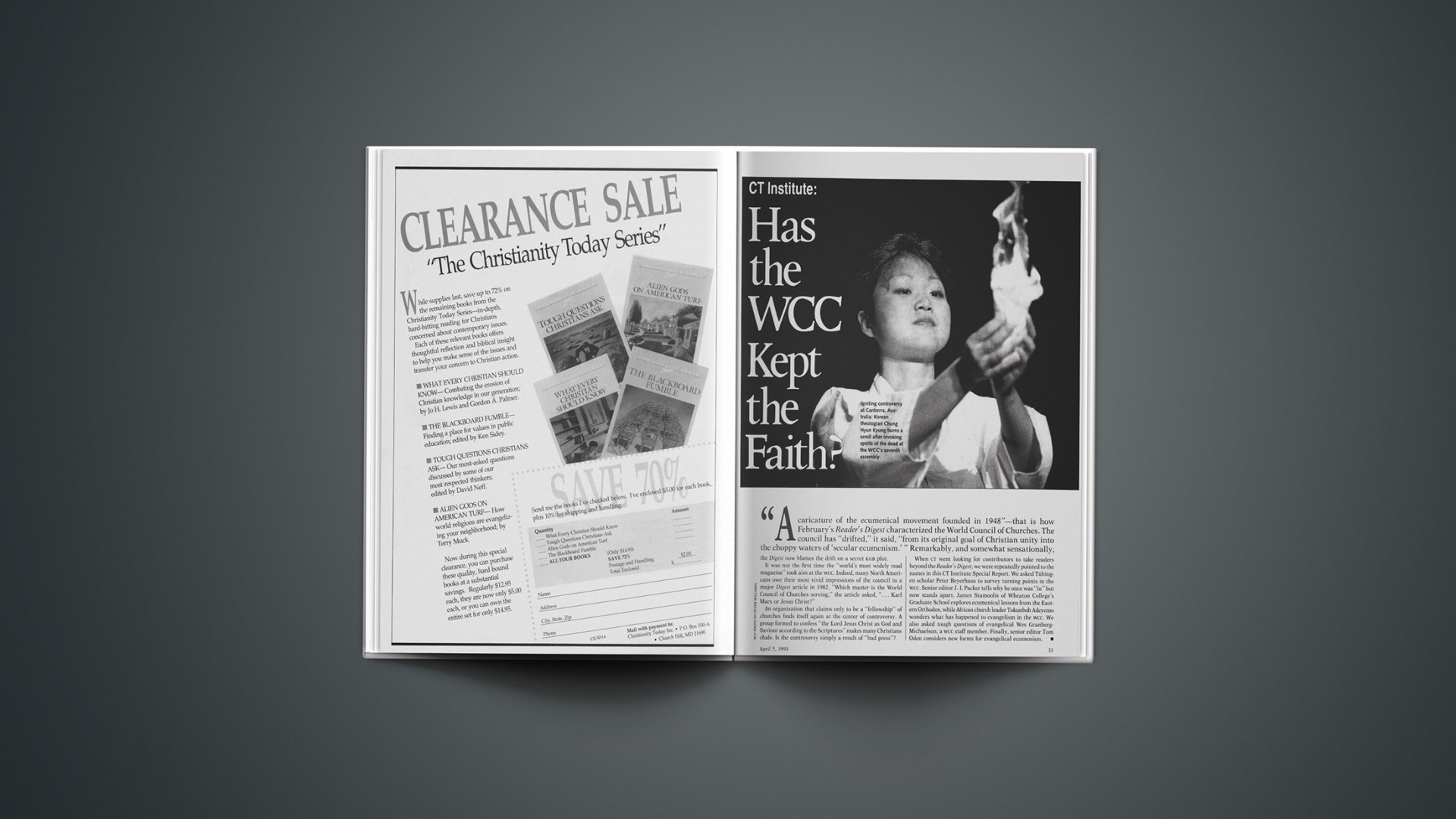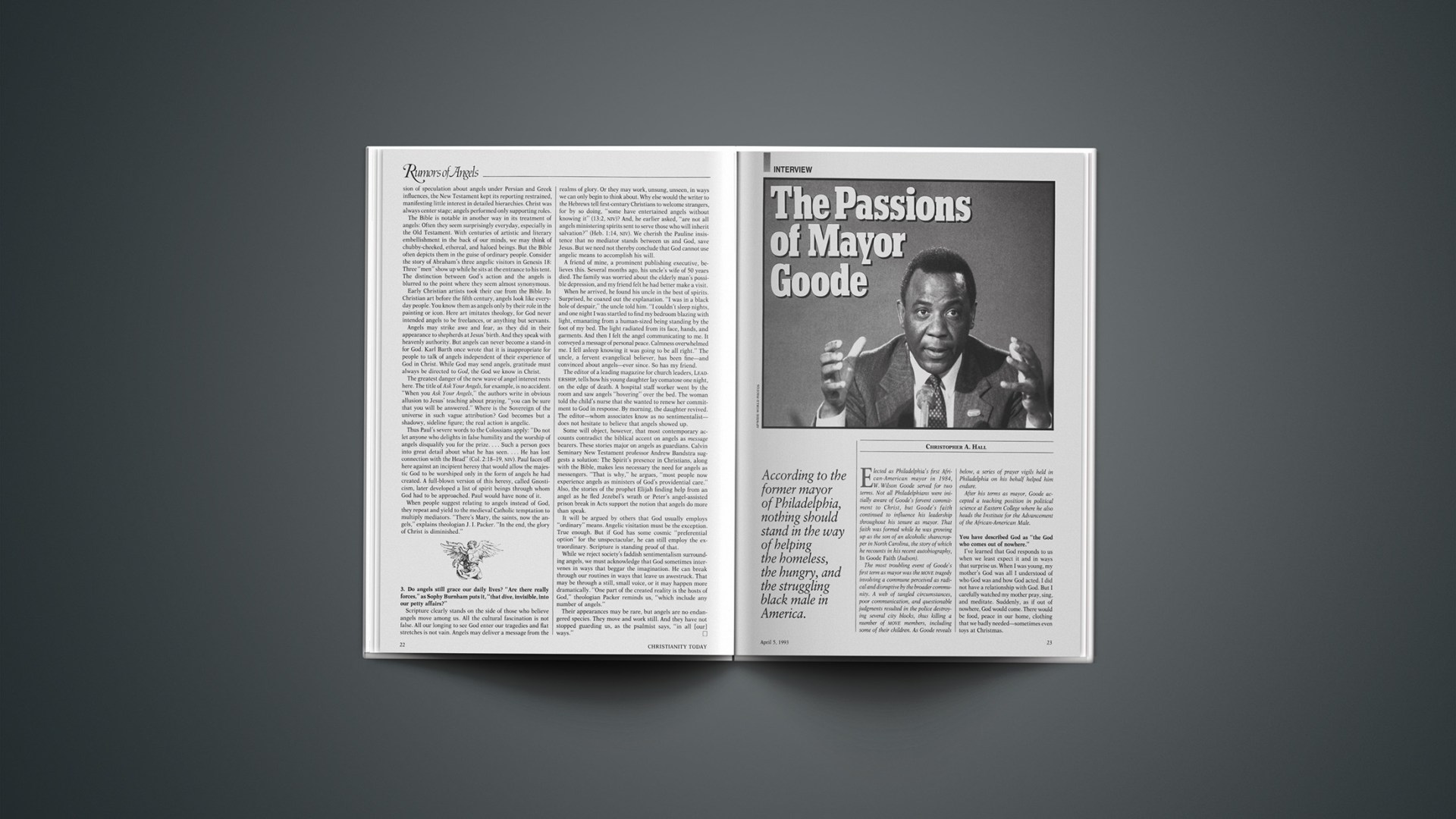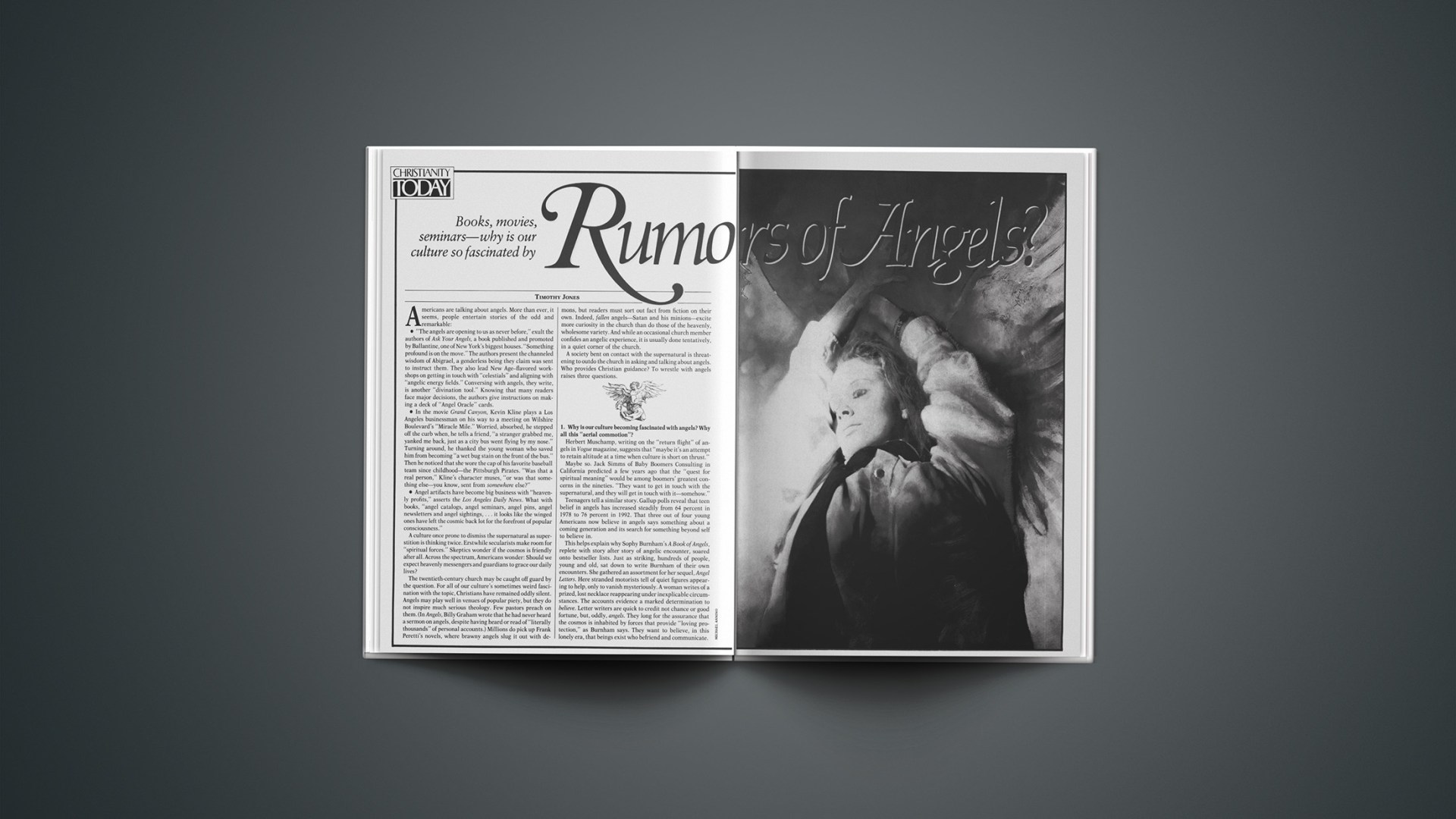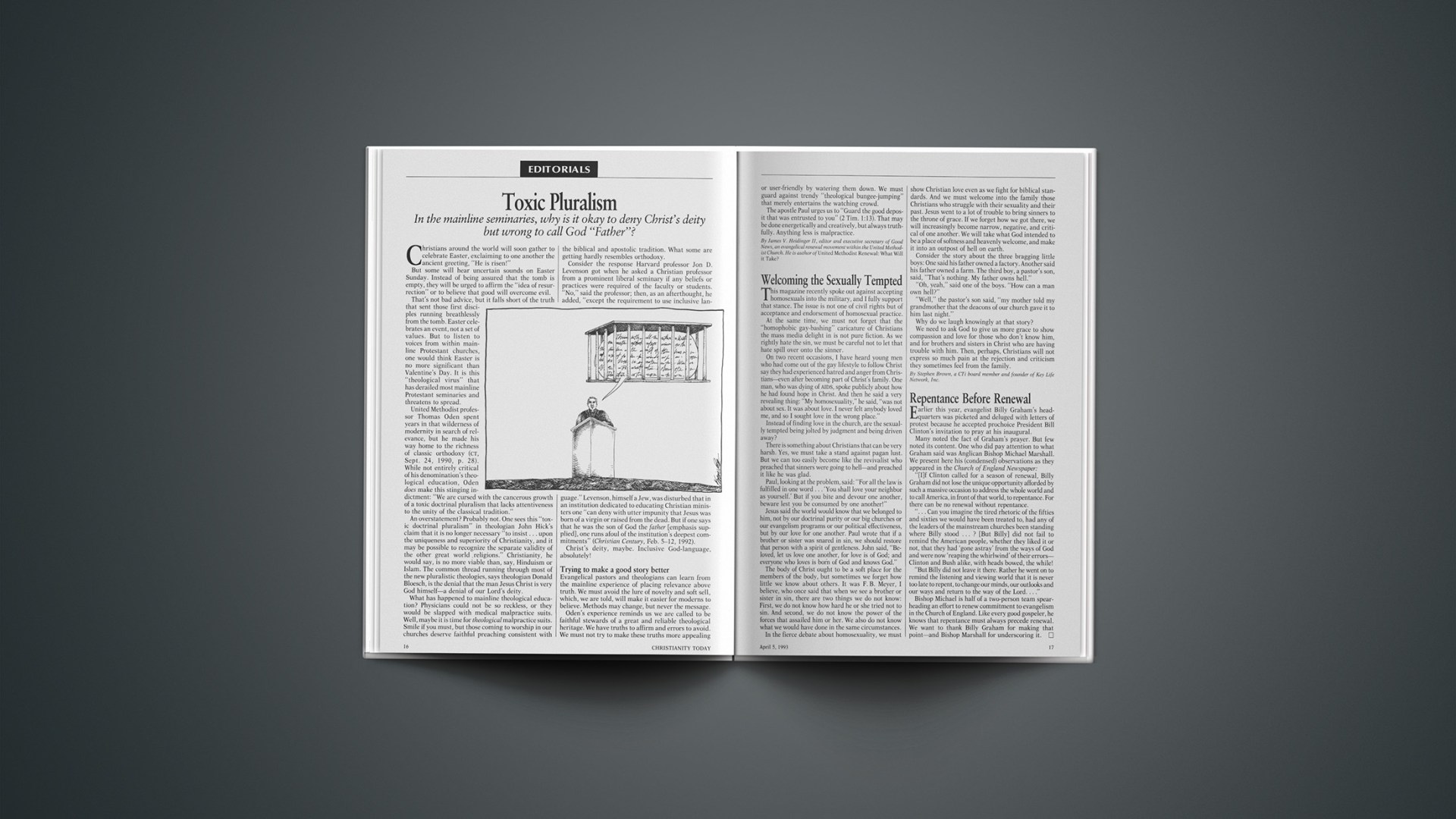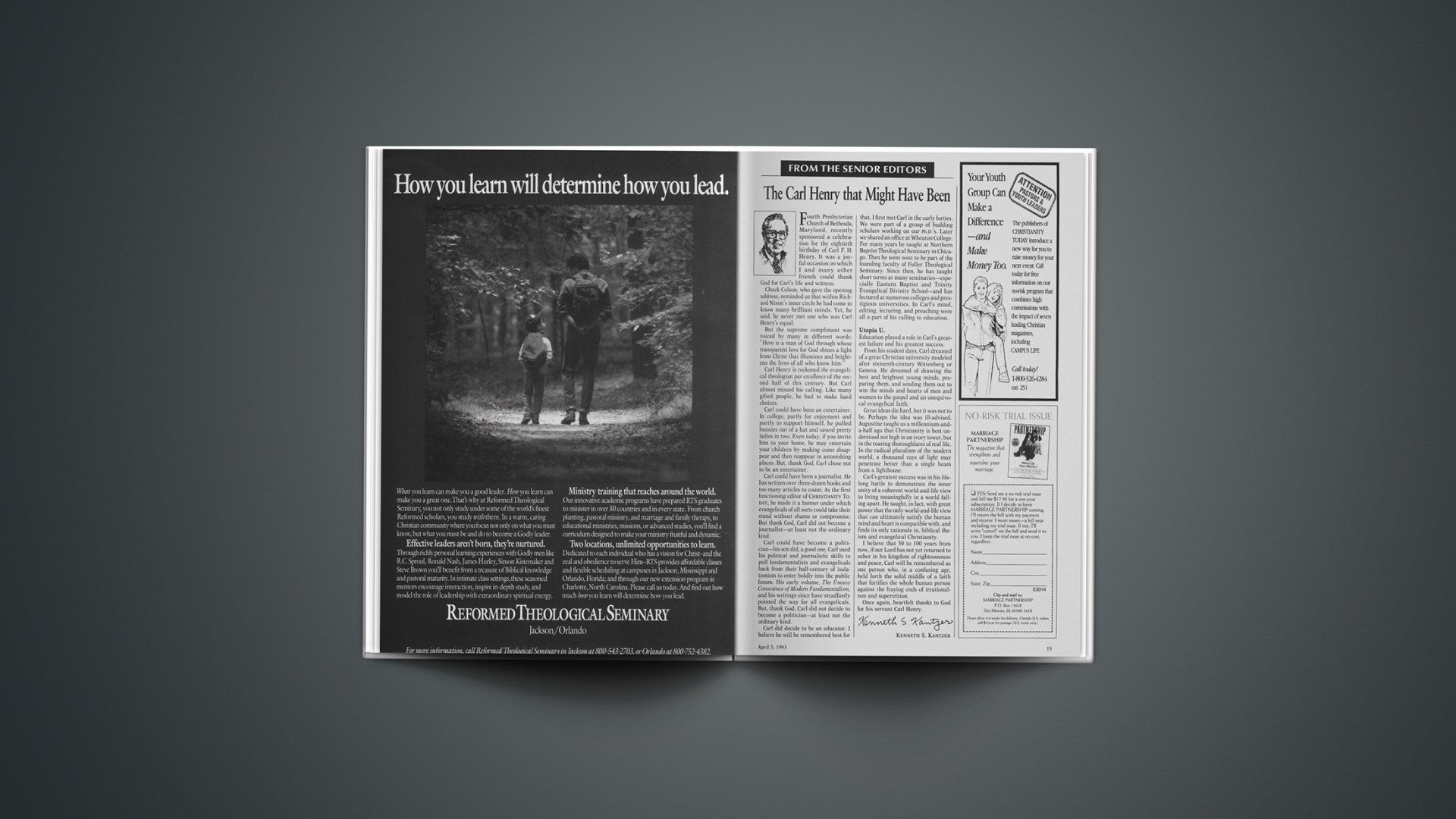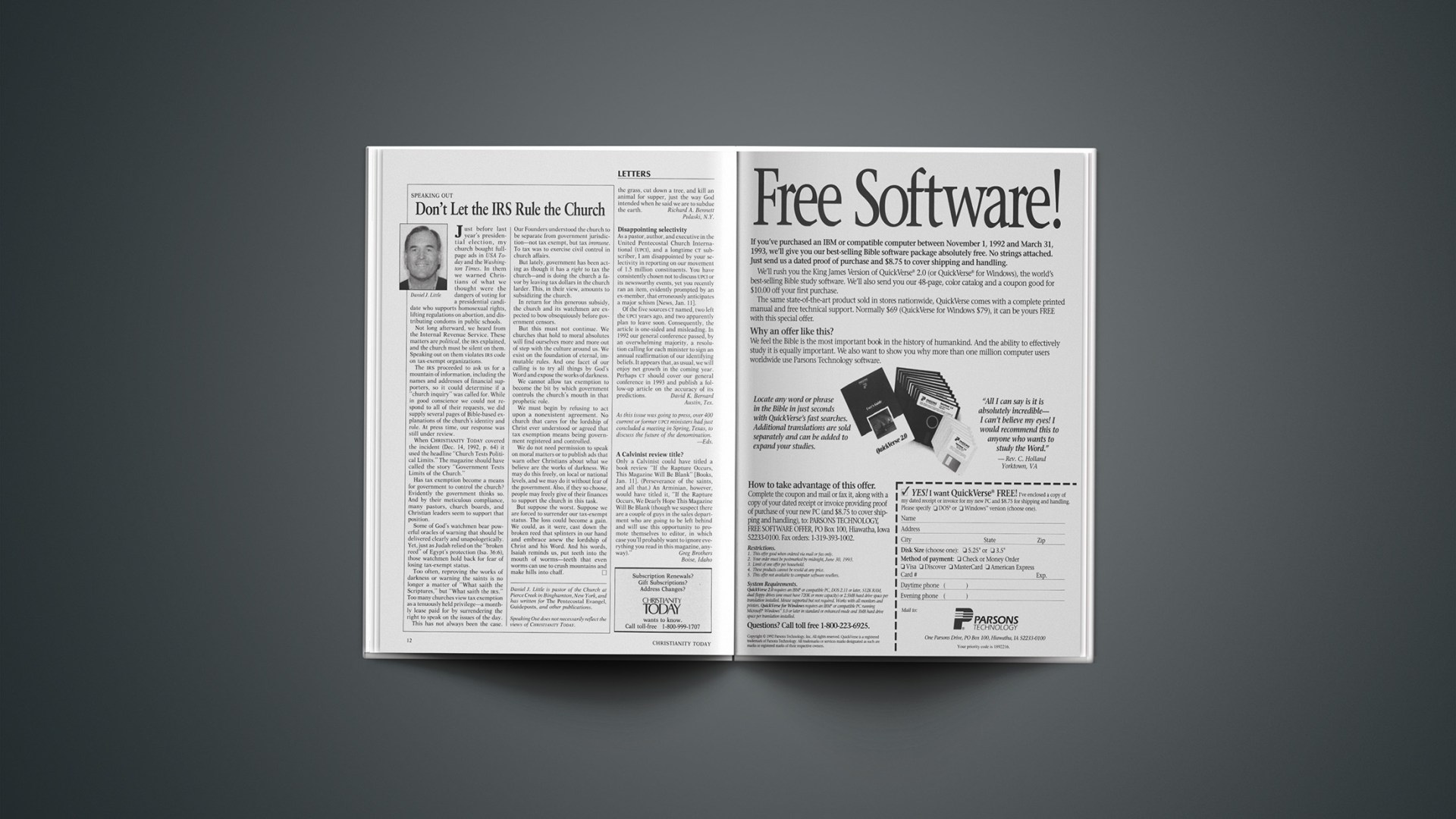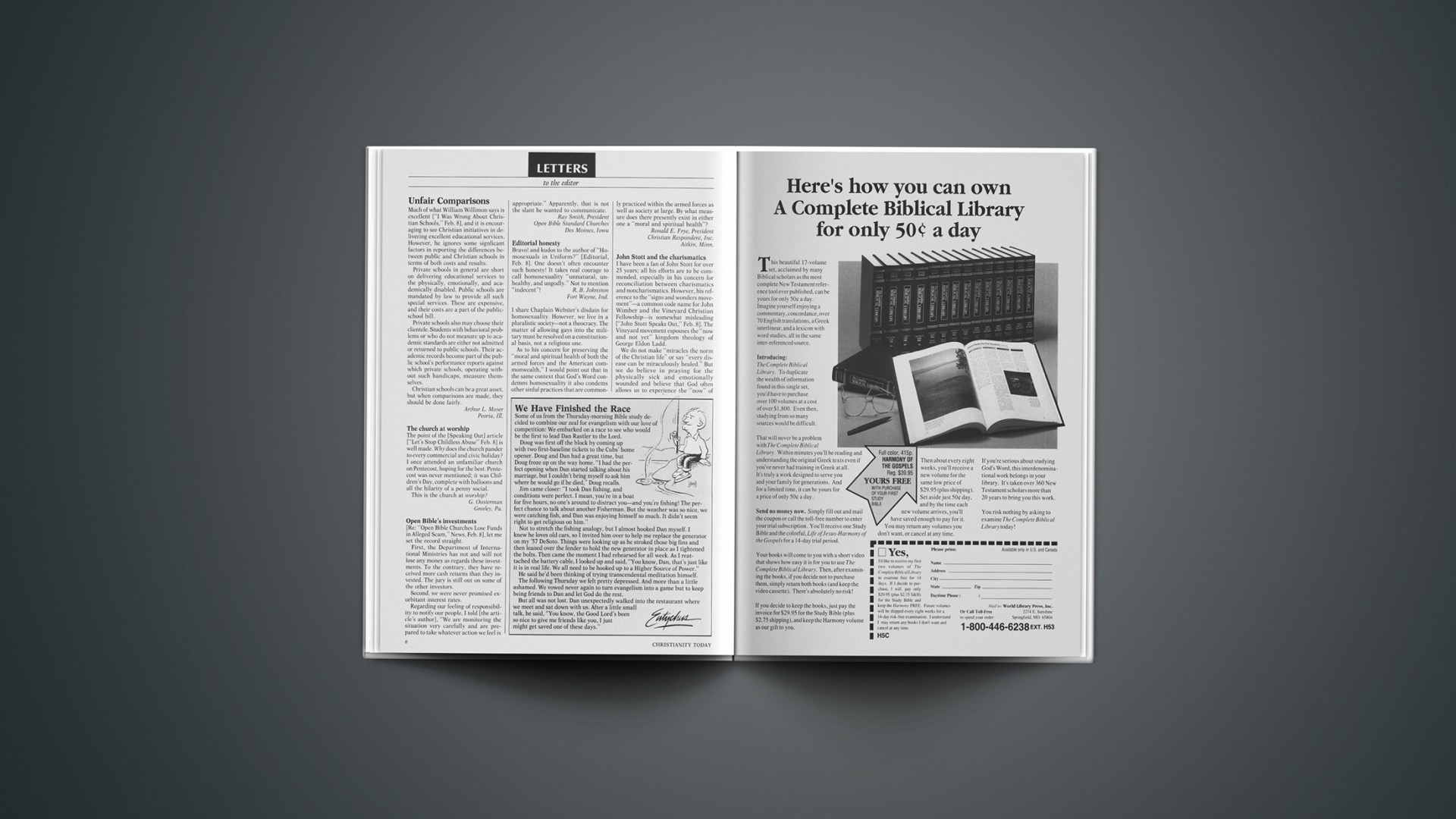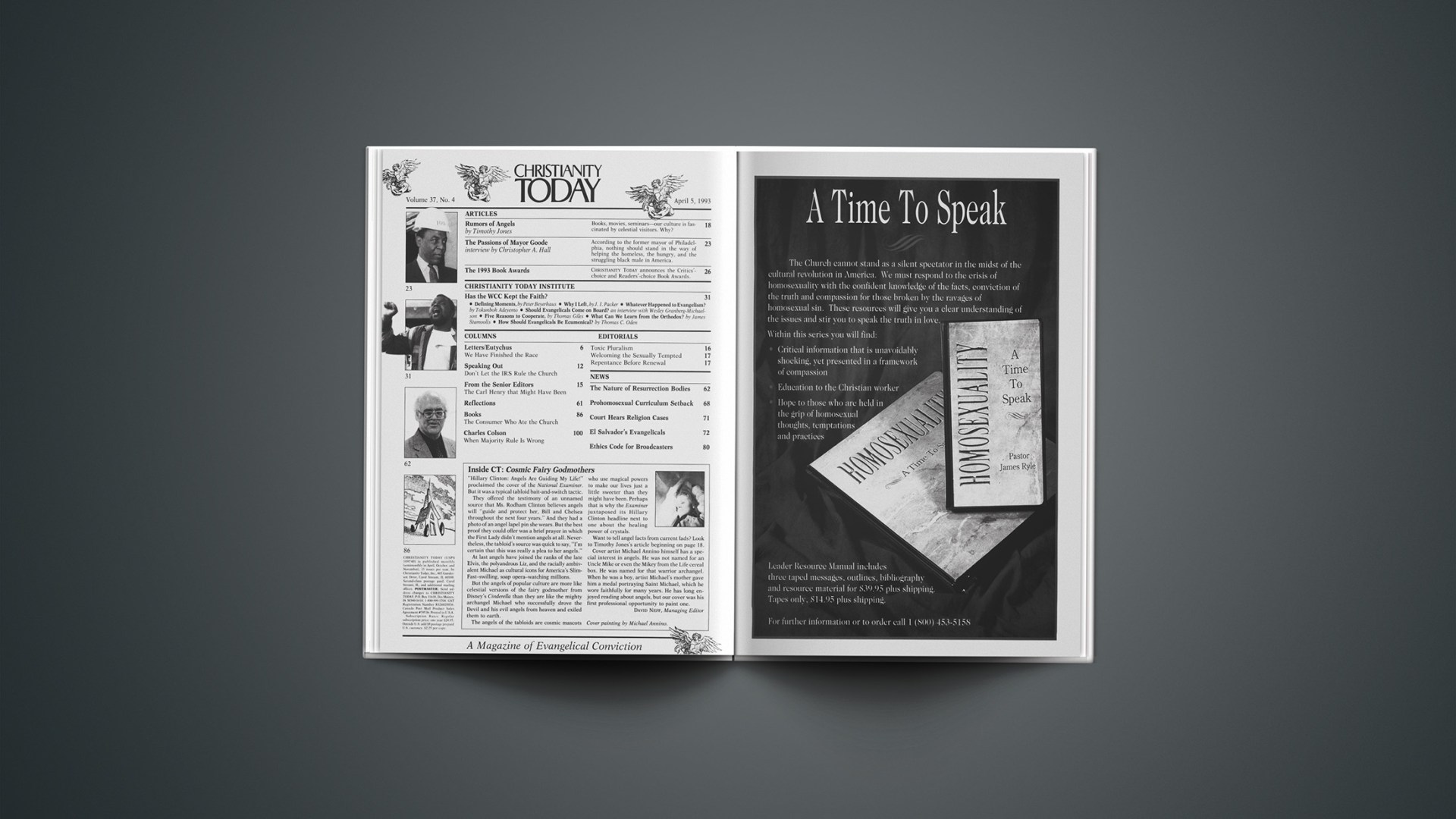The offence of Christ
I believe it to be a grave mistake to present Christianity as something charming and popular with no offence in it.… We cannot blink the fact that gentle Jesus meek and mild was so stiff in His opinions and so inflammatory in His language that He was thrown out of church, stoned, hunted from place to place, and finally gibbeted as a firebrand and a public danger. Whatever His peace was, it was not the peace of an amiable indifference.
—Dorothy L. Sayers in A Careless Rage for Life
Does prayer change things?
Prayer has its limits, some say. Speaking to God is all right; but letting God speak to us, well, that might be considered schizophrenia.
Yet Christ said whatsoever you ask the Father in my name will be given to you. Hmmm. Christ was fond of parables and speaking indirectly, but he is about as straightforward as possible about prayer. The question is, do we believe prayer changes things?
—Jay Copp in U.S. Catholic (July 1992)
Shall the next be first?
Perhaps the slack line of belief in eschatology, the theological concern for the last things, moves some to focus their fears on the next things instead.
—Eugene Kennedy in the Chicago Tribune (Jan. 11, 1993)
The wrong questions
A careful look at the gospels shows that Jesus seldom accepted the questions posed to him. He exposed them as coming from the house of fear.… To none of these questions did Jesus give a direct answer. He gently put them aside as questions emerging from false worries. They were raised out of concern for prestige, influence, power, and control.
They did not belong to the house of God. Therefore Jesus always transformed the question by his answer. He made the question new—and only then worthy of his response.
—Henri J. M. Nouwen in Lifesigns
Lessons from life
Perhaps God had chosen me in my time to detail what I learned from all the madness about.
I learned that often the false is made to look appealing.
I learned that witnesses today may be testifiers tomorrow.
I learned that one must be careful in helping others.
I learned that you do not proclaim another man’s evil.
I learned that mediocrity within yourself is unacceptable.
I learned that the more one says the less he is heard.
I learned that one does not argue with an arguer.
I learned that anonymity can be valuable.
I learned that there is safety in moving with the crowd.
I learned that not all praise is meant well.
I learned that secrets should neither be heard nor spoken.
I learned that you do not divulge what you cannot reverse.
I learned that all has its day.
—Baltasar Gracián in The Wisdom of Baltasar Gracián
The greatest victory
O death, where is thy sting? O grave, where is thy victory? This is so true that even Satan cannot deny it. Christ’s resurrection and victory over sin, death and hell is greater than all heaven and earth. You can never imagine his resurrection and victory so great but that in actuality it is far, far greater.
—Martin Luther, quoted in The Joy of the Saints
Freed from ego
A woman said to a guest at dinner, “We say grace at dinner each day to remind us around here that there is something bigger than our egos.” Prayer can free us from the gravitational pull of our egos and remind us of the goodness and might of God. Prayer can move us from self-centered preoccupation to wonder and awe.
—Maxie Dunnam in Living the Psalms
Desperately wicked
The human heart has so many crannies where vanity hides, so many holes where falsehood lurks, is so decked out with deceiving hypocrisy, that it often dupes itself.
—John Calvin in A Calvin Treasury

